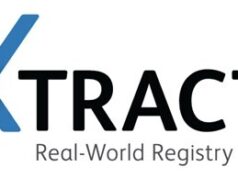 Janssen has announced the launch of ‘Save Legs. Change Lives. Spot Peripheral Artery Disease Now‘, a multi-year initiative aimed at creating urgency and action to address the hidden threat of peripheral arterial disease (PAD)-related amputation, with an initial focus on reaching Black Americans.
Janssen has announced the launch of ‘Save Legs. Change Lives. Spot Peripheral Artery Disease Now‘, a multi-year initiative aimed at creating urgency and action to address the hidden threat of peripheral arterial disease (PAD)-related amputation, with an initial focus on reaching Black Americans.
Janssen details in a press release that it has joined forces with leading professional associations, healthcare systems, and community organisations to advance equitable care for individuals and communities placed at an increased risk for cardiovascular disease in the USA.
The company states that Black Americans experience disproportionate rates of cardiovascular disease, and—as a result of higher rates of asymptomatic PAD, less access to quality vascular care, and greater risk for delays in care—are up to four times more likely than white Americans to have a PAD-related amputation.
“While health inequities have long existed, the last several years have brought them to the forefront of our collective consciousness. Black Americans are placed at disproportionate risk of losing legs and lives—a reality we all must actively address,” said Pernessa Seele, founder and CEO, The Balm in Gilead, a faith-based organisation engaged in eliminating health disparities. “We believe the most effective way to eliminate the alarming health disparities within Black populations is for intentional, sustained and compassionate action by the healthcare industry, public health and faith communities.”
‘Save Legs. Change Lives.’ has three main areas of focus: driving research, collaborating with powerful partners, and empowering individuals and communities, Janssen states.
Research to break down barriers to PAD screening and increase equitable care
As part of the initiative, Janssen is supporting, sponsoring, and promoting research to uncover systemic bias, identify unmet patient needs, and propel healthcare systems toward change. The company details that research already underway includes a data-based tool to help health systems identify groups of patients with inadequate PAD care and better direct efforts toward those placed at the highest risk of amputation, as well as a series of white papers that highlight best practices of leading limb salvage programmes for people at risk for amputation.
“Everyone deserves a chance to avoid an amputation. I grew up in my dad’s podiatry practice and I saw from a young age what a difference you can make in simply helping people move through the world,” said David G Armstrong, professor of Surgery and director of the Southwestern Academic Limb Salvage Alliance (SALSA), at Keck School of Medicine, University of Southern California (Los Angeles, USA), and president of the American Limb Preservation Society (ALPS). “Limb preservation is of paramount importance, and I believe in the big idea that, together, we can eliminate limb amputations over the next generation. The inspiring thing is that—even with so many factors collectively stacked against our patients, ongoing research, awareness and sharing of best practices is vital to ensure we help people with PAD protect their legs and avoid the devastating consequences of amputation.”
Collaboration to unlock better PAD care and improve outcomes
Janssen notes that it is collaborating with various partners, including universities, health systems, non-governmental organisations, and change makers to break down barriers to equitable and inclusive care, ranging from access and health literacy to healthcare provider diversity.
The company states that it is proud to help support the American Heart Association’s PAD National Action Plan, which aims to reduce PAD-related amputation. Additionally, Janssen is sponsoring the American College of Cardiology Foundation’s ‘Change the FIELD’ initiative, a major multi-year effort to foster inclusivity, equity, leadership, and diversity in the field of cardiology.
Education, awareness and screening to reach individuals placed at greatest risk
Janssen is supporting grassroots PAD awareness, education and screening that empowers individuals and communities to change the trajectory of their health, the company adds in their press release. These efforts include:
- Empower PAD: a traveling mobile health unit that brings PAD screening and education directly to communities across the nation;
- The Change Network: a steering committee that convenes healthcare thought leaders and patient advocates to fuel discussion and inform the development of patient-friendly PAD resources, including ArteryAware.com;
- Healthy Directions: a community education program designed to raise awareness about PAD with Black Americans and in communities of colour; and
- The Balm in Gilead: supporting the creation of culturally tailored PAD educational resources and awareness programming for faith-based institutions in the Chicago area serving individuals of African descent with the goals of preventing diseases, improving health outcomes and eliminating health disparities.
“‘Save Legs. Change Lives.’ sets in motion a vision for more relevant, trusted and inclusive care for everyone affected by PAD,” said Avery Ince, vice president, Medical Affairs, Janssen Cardiovascular & Metabolism, Janssen Scientific Affairs. “As part of Johnson & Johnson, Janssen believes that major corporations have the power—and therefore the responsibility—to tackle pressing health challenges and make good health a reality for all people. We hope our efforts will inspire action to reduce amputations among people living with PAD.”
‘Save Legs. Change Lives.’ is part of Johnson & Johnson’s broader initiative, Our Race to Health Equity (ORTHE)—a US$100 million commitment to help eradicate racial and social injustice as a public health threat.










